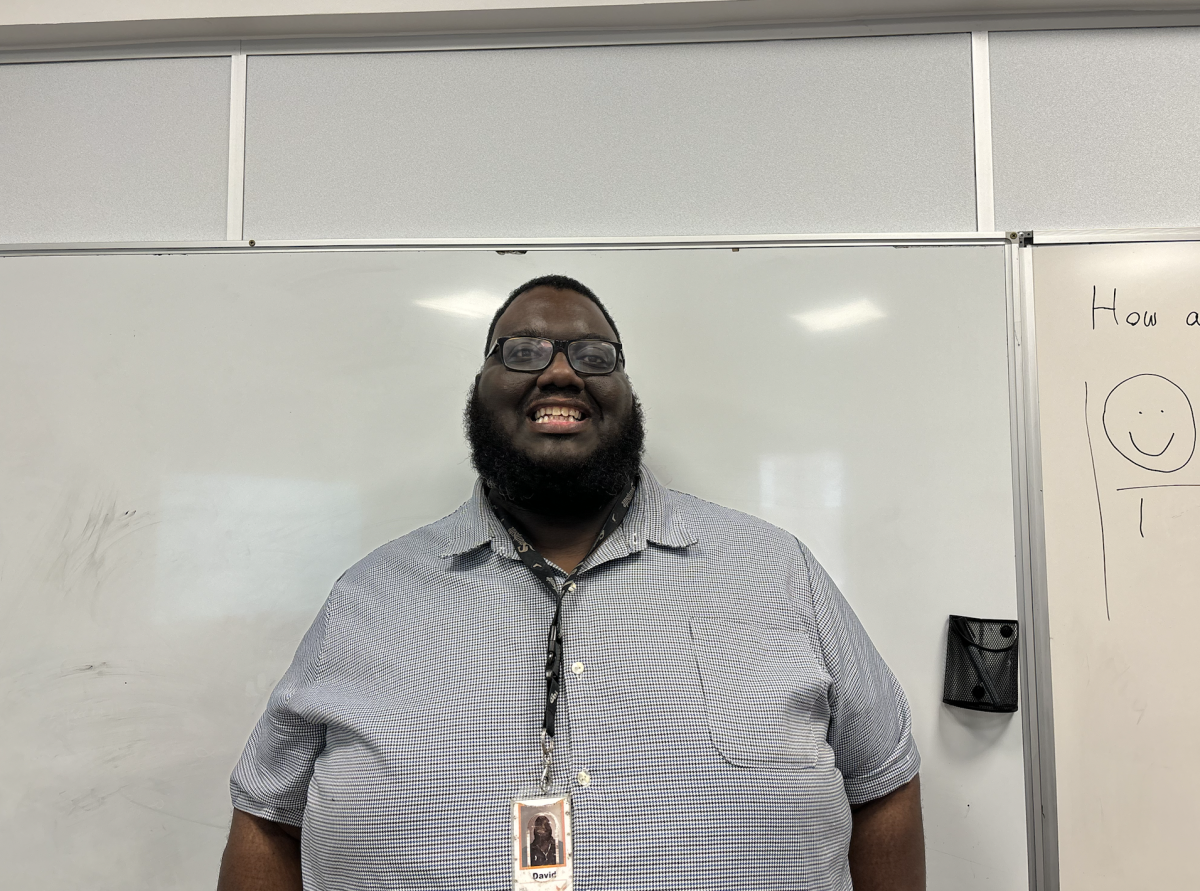Earlier this fall, two hurricanes, Florence and Michael, destroyed parts of the southeastern U.S. with heavy rains, winds up to 150 mph and storm surges, walls of ocean water, as high as 14 feet.
Prior to the natural disaster, “serene,” is how Maddie Douglas (’19) described the community surrounding her family beach house on Emerald Isle, North Carolina. After Hurricane Florence tore through the area in the beginning of September, the roof of the house caved in, forcing Douglas’ family members who lived there year-round to search for new housing. Many of Douglas’ family members were forced to move as far as 50 miles inland, including Douglas’ 95-year-old great-great aunt. “[The move] was really hard for her just as far as her needing medical attention frequently,” Douglas said. “But, luckily my grandparents on my mom’s side have been able to go down there, and they helped move her things beforehand. They had a special handicapped vehicle for her and everything.”
Disparately, Brodie Craig (’18), who is currently a freshman at Duke University in Durham, North Carolina, said the area surrounding the campus was almost entirely missed by the hurricane, save for heavy rain and wind. Although Duke’s campus was closed for four days, Craig recalls that the build-up to Hurricane Florence and the presumed destruction was far greater than what actually happened. “During the hurricane, there were moments where the campus seemed empty, you knew that around 60 percent of the students were there, but you couldn’t see anyone out because people were thinking it was going to hit,” Craig said. “But, it didn’t hit us that hard, I was out with a group of around 20 guys playing a football game in the pouring rain and wind.”
While some of the campus’ facilities were closed during the four days that Hurricane Florence was meant to hit, the worst part of the weather for Craig was the day after it passed.
Aftershocks of the hurricane caused a surge of hot and cold air, creating small concentrated tornadoes around the campus’ surrounding area. “On Monday morning we actually had classes shut down until 12 p.m. because we had two tornado warnings… there were sirens all over Durham. They were keeping kids inside and that was actually probably the worst weather we got,” he said.
Hurricane Michael hit the U.S. on October 15 and had effects comparable to Hurricane Florence, where some regions were hit especially hard while others seemed to be bypassed completely. Grade 7 English Teacher Tracy Steege lived in Florida from the age of 14 to until she graduated from the University of Florida in Gainesville.
For Steege, the build-up to Hurricane Michael didn’t feel as intense compared to other natural disasters she had been previously experienced. “It didn’t sound like it was going to be a big deal, people weren’t afraid of this one,” she said. “It seems like people were pretty surprised by the damage that it did [cause] and they weren’t necessarily prepared for that.”
None of Steege’s family that lives in Florida were affected by the hurricane; however, some of her friends felt like it was a non-event whereas another one of her friends’ whole neighborhood got wiped out. “I actually talked to a couple of friends who lived like an hour from where it hit and they said it was a total non-event,” she said. However, Steege said her sorority sister’s childhood neighborhood was completely destroyed.
Pets, which are often forgotten about in the wake of natural disasters, have been a major concern to Steege’s friends. She has friends who are helping find missing dogs and providing resources to dog shelters that have been affected by the storm. “[My friend is] really passionate about dogs and animals. She was just jumping on board with someone else and they were just working together to gather supplies to bring to one of the animal shelters,” she said.
Similar to Steege, Mateo Farina (’21) spent most of his childhood in Florida before moving to London, and also had friends who were affected to varying degrees. “Most of my friends are from [Miami], which is on the east coast of Florida. Thankfully the hurricane went more to the west coast but still a lot of damage has been done,” he said. Farina’s friends who live on the west coast of Florida said they experienced flooding, making it nearly impossible to drive on the few roads the area has.
Both Steege and Farina have experienced hurricanes in their lives. In Farina’s case, before moving to London, he had just experienced 2016’s Tropical Storm Colin, which reached wind speeds of up to 85 mph. Farina had to evacuate his building that he was living in and spent the night with friends that lived further inland.
After Storm Colin, and now Hurricane Michael, Farina noticed the direct impact that natural disasters have on tourism in Florida, which according to the Florida governor’s office, is the number one contributor to Florida’s economy. “Florida is huge on tourism and relies heavily on it. Due to the damage there is, it’s going to affect both the people and the economy in Florida,” Farina said.
Steege distinctly recalls Hurricane Andrew which hit Florida in 1992 while she was at university. “I was up in Gainesville, but Hurricane Andrew hit south Florida and it flattened below Miami,” she said. “People were in their bathtub with mattresses over themselves because their roofs were being ripped off.” Although Steege was around instances of this happening, she has never had to take such precautions. “The [hurricanes] I’ve been through just sounded really creepy but you just wake up in the morning and there are trees down,” she said.
While Farina believes that Florida is a state which is adequately prepared to deal with natural disasters, he thinks that there is always more that can be done. “You can never really have too much help and there should be more going on to help people,” Farina said. “ I think there can be more response and more immediate response to help the immediate after-effects of a hurricane.”





